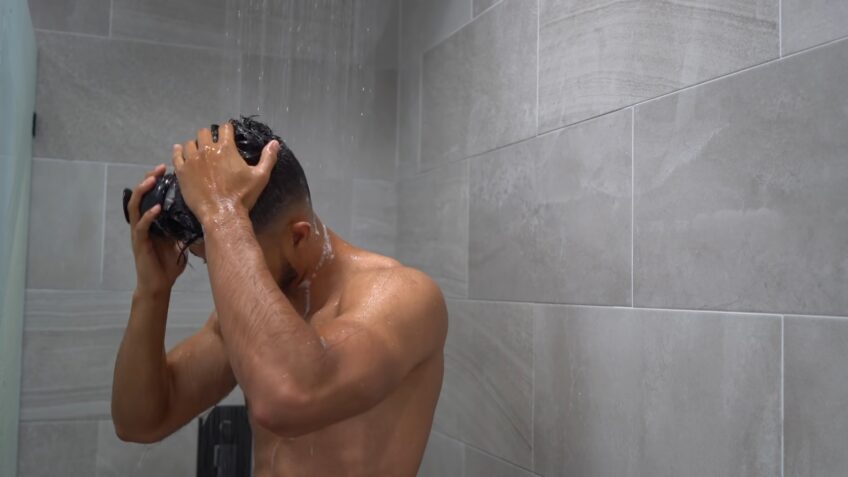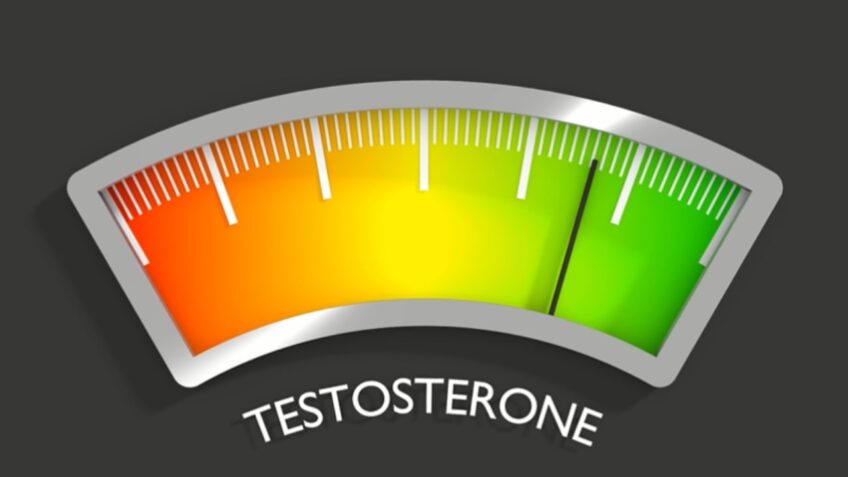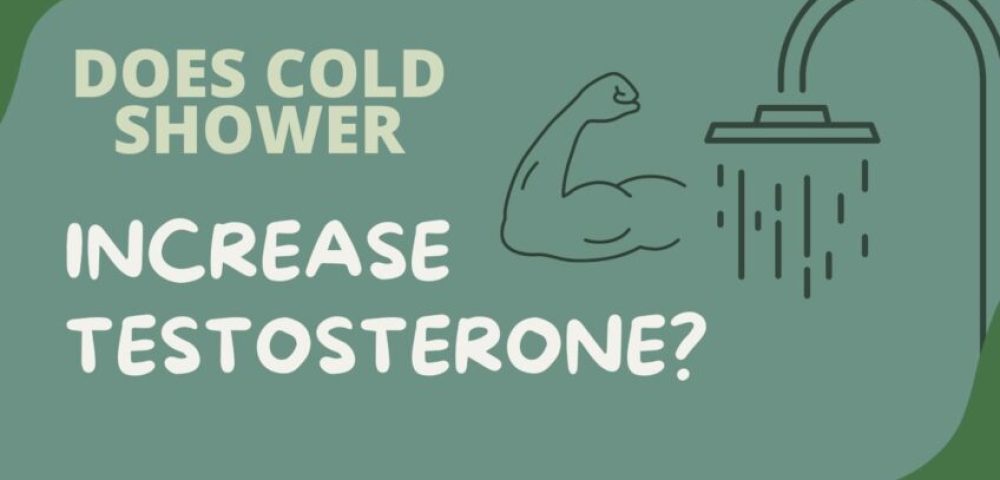Cold showers, as well as cold baths in general, have been a popular topic of discussion in the health and wellness community for quite some time now. While some (if not most) people might find the idea of taking an unpleasantly cold shower a joke, many others swear by the benefits they provide.
There is a lot that suggests that showering and bathing in cold water helps our body and mind in many ways. Throughout history even, many civilizations explored the various ways in which different water temperatures, hot and cold, benefit human health.
While hot baths and steam rooms were present around the world, from the Roman baths to Scandinavia and Asia, the cold was also known as a way to boost the immune system and health.
People living in colder areas would regularly bathe in frozen lakes and ice-cold rivers as a way to get stronger, to connect with nature, and to practice for a likely scenario in which they would unwillingly find themselves in similar conditions. In modern times, medicine and fitness suggest that cold showers really do help.
There is also a very special reason why it is so popular in the 21st century, because of its possible connection with testosterone level increase.
Page Contents
- 1 General Health Benefits
- 2 Do They Help Testosterone Levels?
- 3 FAQ
- 3.1 What activity increases testosterone the most?
- 3.2 What temperature is best for testosterone?
- 3.3 What time is testosterone the highest?
- 3.4 Do cold showers increase sperm count?
- 3.5 Do they increase energy?
- 3.6 Do they improve immunity?
- 3.7 Does smoking increase testosterone?
- 3.8 What are the symptoms of the high testosterone?
- 4 Conclusion and Takeaways
General Health Benefits

Before talking about testosterone levels specifically, let us see how cold showers help with general health. To begin with, taking a cold shower can improve your circulation. When you expose your body to cold water, your blood vessels constrict.
It is basic physics since things shrink in the cold and expand in the heat. This causes your blood to flow more efficiently which helps to reduce inflammation and swelling. Improved circulation can also lead to a more robust immune system since it delivers white blood cells and other vital nutrients throughout the body.
Did you know that some foods can have the same negative impact on your body and muscles as we mentioned above? That’s why if you want to lose weight, get in shape, or just eat healthily you should consider the AIP diet.
Cold showers can also provide relief from muscle soreness and tension. If you have ever used an ice pack to soothe a sprain or pulled muscle, you know how effective cold therapy can be. Taking a cold shower has a similar effect as cold water helps to reduce inflammation and promote healing.
Numerous athletes, from boxers and runners to basketball and football players, swear by their frequent ice baths. Many fitness enthusiasts and generally active people do so as well.
In addition to physical benefits, cold showers can also help to boost your mental health. Cold water has been shown to increase the production of endorphins, the body’s natural feel-good chemicals, which are very important for the general, everyday mental state.
Watch this video of Wim Hof explaining in detail all the health benefits that cold showers offer:
This can lead to an improved mood and reduced stress and anxiety. While it does feel unpleasant at first, a burst of cold water will end up improving your mode once you are done with it.
Furthermore, taking a cold shower tends to improve your skin and hair health. Hot water strips your skin and hair of their natural oils leading to dryness and irritation. This is not a problem for everyone, but those with naturally drier hair and skin will notice it. Cold water is not like that since it can actually help to tighten and firm the skin. It also promotes hair growth and brings it its natural shine.
Last but not least, taking a cold shower helps build resilience and mental toughness. When you expose yourself to such discomfort intentionally, you train your body and mind to handle stress much more effectively.
Over time, you may find that you are better able to cope with challenges and setbacks in other areas of your life. It all starts with a sudden burst of cold water. It does not even have to be for an entire shower. Do it before or after the usual water temperature you go with or lower it gradually.
Do They Help Testosterone Levels?

Now to the main bit of the article: do cold showers increase testosterone levels? There is actually some evidence to suggest that cold showers may increase testosterone levels in men.
Testosterone is a very important hormone for the development of male sex organs and secondary sex characteristics, as well as for maintaining muscle mass and bone density. As such, it is critical for a healthy male.
The researchers conducting this study speculated that the cold water may have stimulated the production of testosterone by activating the sympathetic nervous system of the body, also known as the fight-or-flight response.
Another study, this one from the International Journal of Sports Medicine, says that cold water immersion of any sort, whether a bath or a shower, increased testosterone levels in male athletes after exercise. The researchers suggested that the cold water might have helped with the reduction of inflammation, which would naturally promote recovery and lead to higher testosterone levels.
However, while all of this is encouraging, it is important to note that evidence on the relationship between cold showers and testosterone levels is minimal and that much more research is needed to fully understand the phenomenon before it can be confirmed and proven. What is more, the effects of cold showers on testosterone levels will vary depending on the age, health status, and lifestyle habits of the individual.
FAQ

What activity increases testosterone the most?
There are several activities that have been shown to increase testosterone levels in the body, including:
- Resistance training: Strength training with heavy weights, especially compound exercises like squats, deadlifts, and bench presses, can help increase testosterone levels.
- High-intensity interval training (HIIT): Short bursts of intense exercise followed by periods of rest can also increase testosterone levels.
- Getting enough sleep: Getting enough quality sleep is important for maintaining healthy hormone levels, including testosterone.
- Eating a healthy diet: Consuming a diet that is high in protein, healthy fats, and low in processed foods can help support healthy testosterone levels.
- Reducing stress: Chronic stress can lower testosterone levels, so finding ways to manage stress through relaxation techniques like meditation, yoga, or deep breathing can help support healthy hormone levels.
It’s important to note that while these activities may help increase testosterone levels, they may not work for everyone and should not be relied on as a sole solution for low testosterone levels. If you are concerned about your testosterone levels, it’s best to speak with a healthcare provider.
What temperature is best for testosterone?
Testosterone production in the body is regulated by several factors, including temperature. The ideal temperature range for testosterone production in the body is between 87°F (31°C) and 96°F (36°C).
Temperatures outside of this range can potentially negatively impact testosterone production. For example, exposure to extremely high temperatures, such as in a sauna or hot tub, for extended periods of time may temporarily lower testosterone levels.
However, it’s important to note that the impact of temperature on testosterone levels is not significant enough to rely on as a sole strategy for increasing testosterone levels. Other factors, such as exercise, diet, and stress management, also play a significant role in testosterone production.
What time is testosterone the highest?
Testosterone levels in the body naturally fluctuate throughout the day, with the highest levels typically occurring in the morning hours.
Most men experience a surge in testosterone levels within the first hour or two after waking up, peaking around 8-10 am. After this peak, testosterone levels gradually decline throughout the day, reaching their lowest point in the late evening hours.
However, it’s important to note that testosterone levels can be influenced by a variety of factors, including age, diet, exercise, sleep, and stress levels. Therefore, testosterone levels may vary from person to person and can be affected by daily habits and lifestyle choices.
Do cold showers increase sperm count?
There is some evidence to suggest that cold showers may increase sperm count in men, but more research is needed to confirm this effect.
Cold showers and exposure to cold temperatures have been shown to increase testosterone levels, which can indirectly impact sperm count. Higher levels of testosterone can stimulate sperm production and increase the motility of sperm, which can improve overall sperm count.
Additionally, cold temperatures may also improve sperm quality by reducing oxidative stress, which can damage sperm DNA and impair fertility.
Do they increase energy?
Taking cold showers has been associated with an increase in energy levels for some people, but the effects can vary depending on the individual.
Exposure to cold temperatures can stimulate the release of norepinephrine, a hormone that can increase alertness and energy levels. Some people report feeling more awake and energized after taking a cold shower.
Additionally, cold showers may also help improve circulation and reduce inflammation, which can also contribute to increased energy levels.
Do they improve immunity?
They may have some potential benefits for the immune system, but more research is needed to fully understand this effect.
Exposure to cold temperatures has been shown to stimulate the immune system by increasing the production of white blood cells, which help fight off infections and diseases. Cold showers may also help reduce inflammation, which can contribute to a variety of health problems, including autoimmune disorders.
However, the impact of cold showers on the immune system may depend on a variety of factors, including the duration and intensity of the cold exposure, as well as individual differences in immune function.
Does smoking increase testosterone?
No, smoking does not increase testosterone levels. In fact, smoking has been shown to have the opposite effect, lowering testosterone levels in both men and women.
Cigarette smoke contains chemicals that can interfere with the production and function of hormones, including testosterone. Smoking has also been associated with oxidative stress, inflammation, and damage to the cells that produce testosterone, which can further lower testosterone levels.
What are the symptoms of the high testosterone?
High testosterone levels in men, also known as hyperandrogenism, can cause a variety of symptoms, including:
- Acne: High levels of testosterone can cause an increase in oil production, leading to the development of acne.
- Mood changes: Testosterone can affect mood and behavior, leading to irritability, aggression, and mood swings.
- Hair loss: In some men, high levels can contribute to male pattern baldness.
- Increased body hair: High testosterone levels can cause an increase in body and facial hair growth.
- Enlarged breasts: In rare cases, high testosterone levels can cause breast tissue to grow in men, a condition known as gynecomastia.
- Decreased fertility: High levels of testosterone can suppress the production of sperm, leading to decreased fertility.
- Increased muscle mass: Testosterone is an important hormone for muscle growth and development, so high levels can lead to increased muscle mass and strength.
It’s important to note that symptoms of high testosterone levels can also be caused by other underlying health conditions, so if you are experiencing any of these symptoms, it’s best to speak with a healthcare provider for a proper diagnosis and treatment plan.
Conclusion and Takeaways
To sum up, cold showers do offer a wide range of health benefits, both physical and mental. From improved circulation and muscle recovery to better skin and hair health, there are plenty of reasons to give cold showers a try.
While the idea itself of exposing yourself to cold water may seem daunting and unnecessary, the benefits are well worth the temporary discomfort. So don’t overthink too much about it, as it is not good for your health and jump into a cold shower now to see all the benefits!
Also, while it is possible that regular cold showers may increase testosterone levels in men, it is not a guarantee nor would it ever be a universal effect to live by. If one is interested in using cold showers as a way to potentially boost testosterone levels, it may be worth a shot.
See how you feel and monitor your body’s response. It would be best to consult with your healthcare professional before making drastic changes. There is such a thing as doing it right even here. Caution is advised since water that is too cold can be dangerous and a shock for your system.
Astrona Knight is the Editor-in-Chief at Fischer Institute, where she shares her extensive knowledge on health and wellness topics. Her insightful articles cover everything from diet and nutrition to mental health, providing readers with practical tips and the latest research findings.
Also Read:
- Can You Freeze Cooked Collard Greens - Yes, Here's How!
- Does Creatine Increase Testosterone? - Grow in More…
- Does Peripheral Neuropathy Pain Get Worse in Cold Weather?
- How to Increase Testosterone Level for Beard Growth…
- Testofuel vs Prime Male - Increase Your Testosteron Levels
- How to Increase Dopamine to Manage Your ADHD:…















